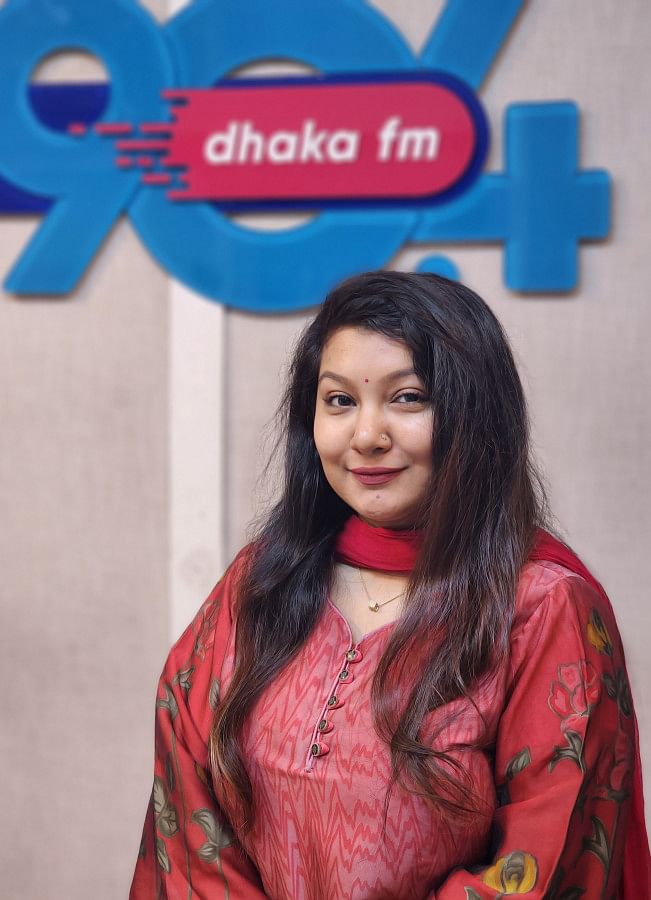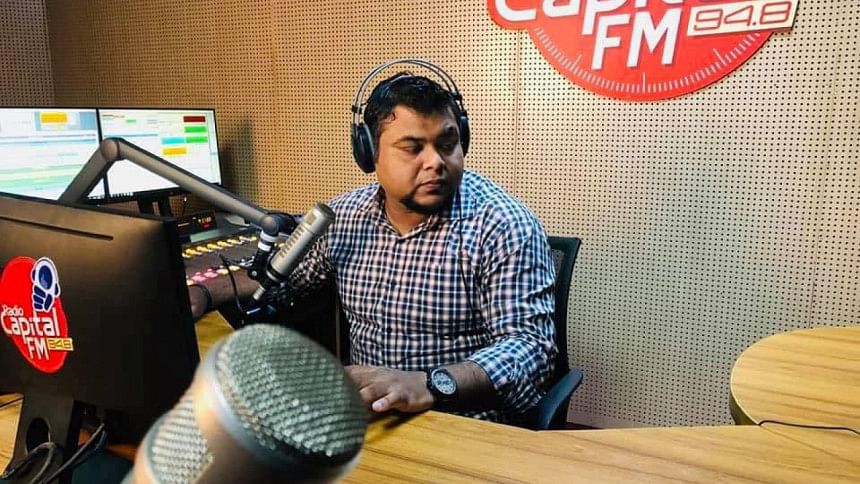Not even six or seven years ago, whether it was a lazy weekend afternoon, a late-night drive, or an early-morning commute, FM radio kept us company. The witty banter of RJs or the hottest new songs, all of it came together to form an audio backdrop to our lives. Radio stations connected people across the country and created shared experiences.
However, like many traditional media, FM radio has struggled to maintain its once-strong relevance in the face of rapid digitalisation, changing listener habits, and the rise of online streaming platforms.
Where did things go wrong?
The decline in FM radio's popularity can be traced to several factors. As Md Faqrul Haque Shawon, Head of Program Management at Radio Today FM 89.6, explains, "Firstly, the rapid advancement of digitalisation has impacted the decline of radio's popularity. Today, most of the content — music or news — that was once exclusively available on radio is now easily accessible online."

Essentially, FM radio has been overtaken by digital media's convenience and personalisation. Instead of tuning in to live broadcasts, listeners — especially the younger generation — prefer on-demand streaming services where they can curate their own playlists and access news whenever they want.
Shawon also highlights another major issue: the failure of many radio programs to evolve with societal and audience demands. "People have become much more tech-savvy and discerning, and radio programs that fail to keep up with these changes struggle to retain their popularity. If content fails to resonate with the audience's evolving interests, it significantly drops in listener engagement," he notes.
Truly, radio jockeys (RJ) once were celebrities in their own right, trusted as friends and influencers long before social media took that role. However, the rise of streaming services, podcasts, and personalised media consumption gradually eclipsed traditional radio's prominence, leading to reduced listenership and financial struggles for many stations.
FM Radio: A lifeline in times of crisis
In a world where internet connectivity dominates, it's easy to overlook the enduring power of FM radio – until crisis hits.
Fahima Faruqe Shantu, an RJ and Assistant Producer at Dhaka FM 90.4, captures this reality perfectly: "We at Dhaka FM are always active during times of natural calamities that our country has faced in recent times. During floods, accurate information was provided on flood updates, evacuation procedures, and safety tips, including weather conditions, relief efforts, and emergency contact information."

In an optimistic tone, Shantu emphasised, "I honestly believe that we can revive FM radios' popularity. Presently, Dhaka FM has two most popular shows called 'Bhalobasar Bangladesh' hosted by Guru Ehtesham, and 'Jibon Golpo' hosted by Golam Kebria. These two specific shows are being recognised by a lot of listeners."
FM radio is uniquely positioned to reach even the most remote areas, where internet service is spotty at best and non-existent at worst. Beyond natural disasters, FM radio has also played an important role in the July Movement, when student protests filled the streets, many digital platforms were restricted or censored.
But radio jockeys, with their immediate access to airwaves, became the voice of the students. Shawon recalls how radio stations offered a critical platform, saying, "When students were organising movements, the radio served as a platform to voice their concerns. Radio jockeys were able to bring their stories to light, offering people a chance to hear their side, especially when other platforms might not have been accessible."
In moments when other media channels falter, radio steps up, ensuring that the voices of the people are not only heard but amplified. Whether it's warning communities about rising floodwaters or broadcasting the pleas of protesting students, FM radio's role in national crises underscores its lasting relevance in Bangladesh.
Bringing back the golden era!
Though the challenges are real, the revival of FM radio isn't a far-fetched dream. Nafiz Redwan Shanto, Manager of Radio Capital 94.8 FM, believes that FM radios need to expand their presence in the digital space. "FM radios should start some podcast collaborations with popular influencers who have a social impact."

"Also, FM radios should focus on niche content that digital platforms thrive on, such as specialised programs on Bangladeshi indie music, tech discussions, or local community initiatives," elaborates Shanto.
For FM radio to reclaim its audience, it must meet them where they are — online. While traditional FM broadcasting will always have its place, integrating radio with digital platforms is essential.
RJs must also focus on interactive and dynamic content. Live call-ins, social media integration, and Q&A sessions can engage listeners and make them feel like an active part of the show, something that on-demand streaming services can't offer.
The way forward
With Bangladesh currently undergoing noteworthy reforms, there's a unique opportunity to revitalise the FM radio industry. This begins with a blend of digital integration and government support.
One of the most pressing needs for the FM radio industry is financial relief. Shawon highlights how the economic impact of the COVID-19 pandemic has exacerbated the struggles faced by radio stations, many of which have seen a significant drop in advertising revenue. "In these challenging times, the government needs to extend support to the radio sector. This could include offering tax relief or reducing broadcast license fees," he suggests.
While FM radio has faced significant challenges in recent years, it is far from obsolete. The industry's role in national crises has demonstrated its continued relevance, and with the right blend of digital innovation, government support, and fresh content strategies, it can once again become a central part of Bangladesh's media landscape.
As Shanto wisely points out, "FM radios should not be biased but rather be very neutral and tell the truth about what's happening in society." With collaboration and creativity, FM radio in Bangladesh can reclaim its place as a cherished and vital medium for information, culture, and community.












Comments